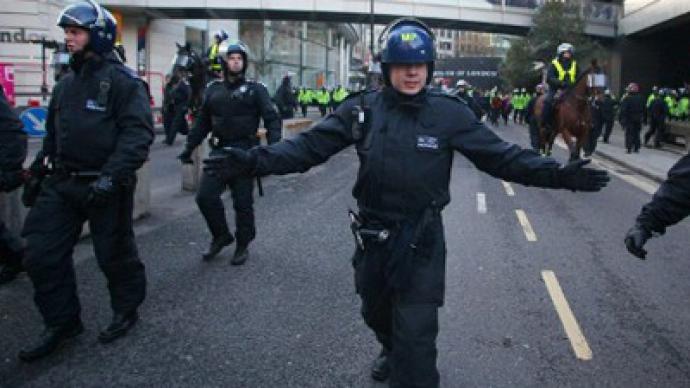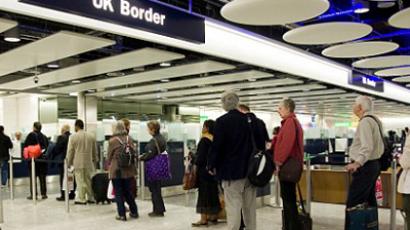Trip to discharge: MI5 boots policeman over Pakistan visit

Britain's internal counter-intelligence service, the MI5, has warned Scotland Yard that its ranks had been foisted by “sleepers” believed to have visited terror camps. This prompted the police to fire employees, some of whom maintain their innocence.
The policemen lost their jobs after their security clearances were revoked, following their failure to pass a security check known as the counter terrorism check (CTC). The vetting was conducted by the MI5 on behalf of the police service. One of the persons who lost their jobs was Abdul Rahman, who is accused of visiting a terrorist training camp in Pakistan, the Sunday Telegraph reports.The former police officer was effectively forced to resign from the force in 2007, after failing to pass the CTC. The reason he was unable to pass the security vetting was that the MI5 suspected that he may have visited a terrorist training camp in Pakistan back in 2001. Rahman, who has a clean criminal record, said he did visit Pakistan that year, but stressed that he had never been to terrorist training camp. He has since been engaged in a legal battle with the police force, arguing that he was the victim of religious and racial discrimination.“My client absolutely denies the allegations against him, and this forms the basis of his claims against the police,” Rahman’s lawyer Jasmine van Loggerenberg said. “It’s important to stress that this is a case being brought by Mr. Rahman, not by the Metropolitan Police.”But his attempt to sue his former employer has not been easy. Last month, the Employment Appeal Tribunal ruled that the hearing could be held in secret despite Rahman’s insistence on a public trial. A High Court justice also ruled that Rahman and his legal team would be barred from parts of the hearing that concerned national security. A security-cleared “special advocate” will be appointed to represent Rahman during the clandestine proceedings – and will be banned from discussing the case with his client. Scotland Yard insists on a secret trial, saying it wants to protect intelligence sources that provide highly sensitive information, which may be compromised if presented in an open court. “This case also raises important issues on whether practices which disadvantage innocent people on the basis of their ethnic or religious background can ever be justified, when the allegations that result are so serious,” Rahman’s lawyer also noted. Rahman, a father of four, was born in Bangladesh and came to Britain when he was nine. In 2003 he joined the police force. In 2005, he was questioned about visits to other countries three times before his security clearance was revoked. He tried to appeal the decision but was denied. He resigned immediately afterwards, as police officers are effectively unable to perform their duties without the clearance. Losing it means losing access to the Police National Computer and other sensitive databases necessary for day-to-day police work.














